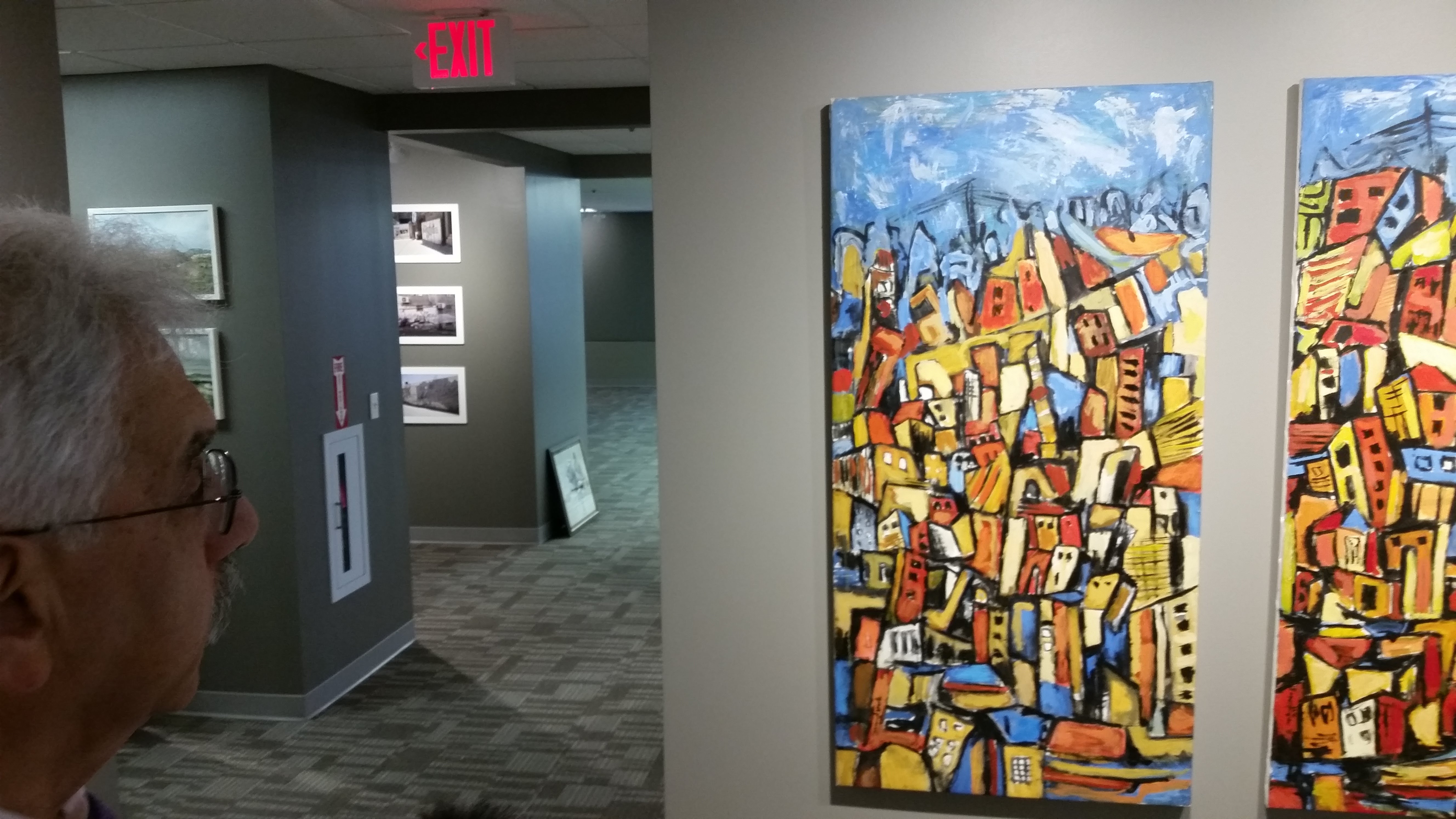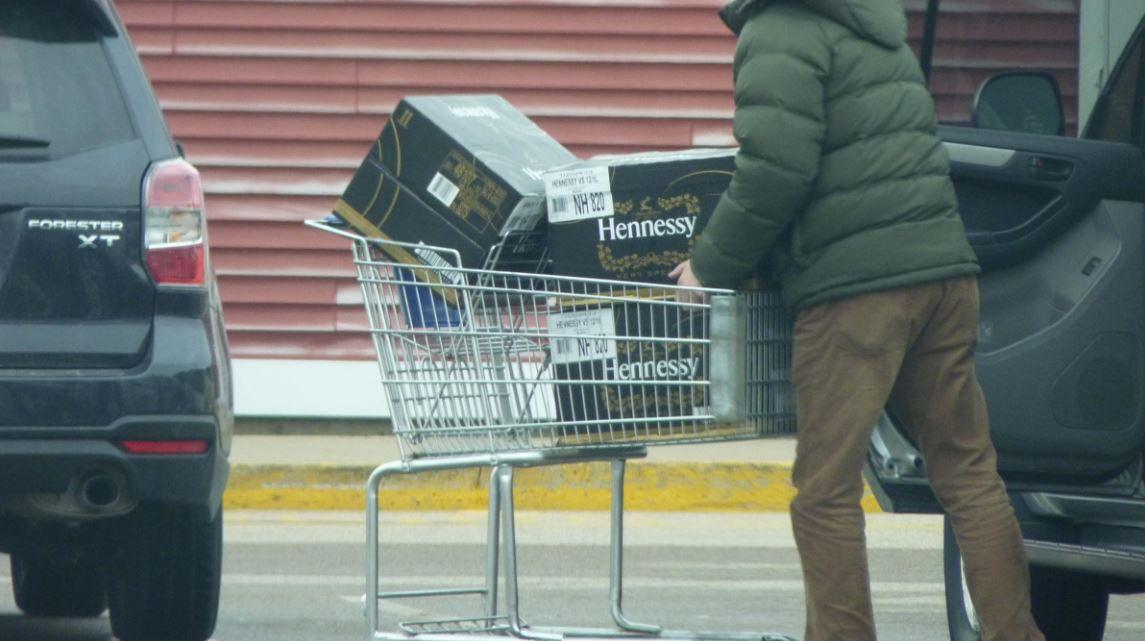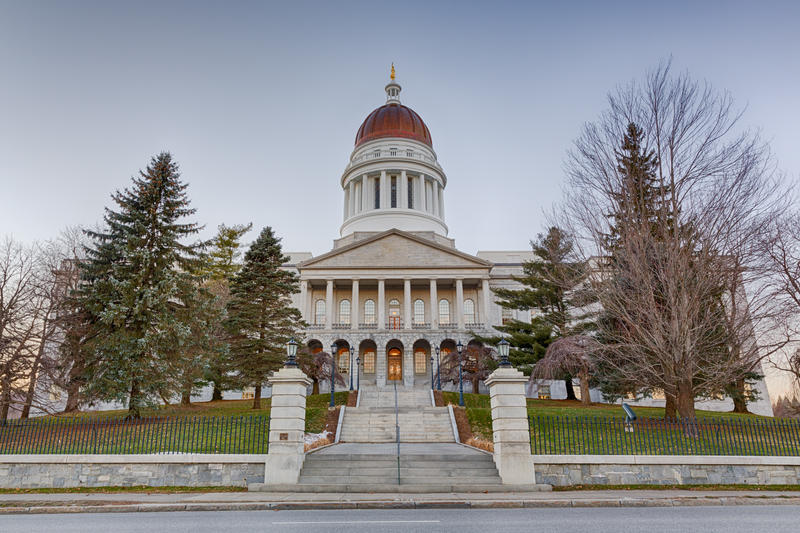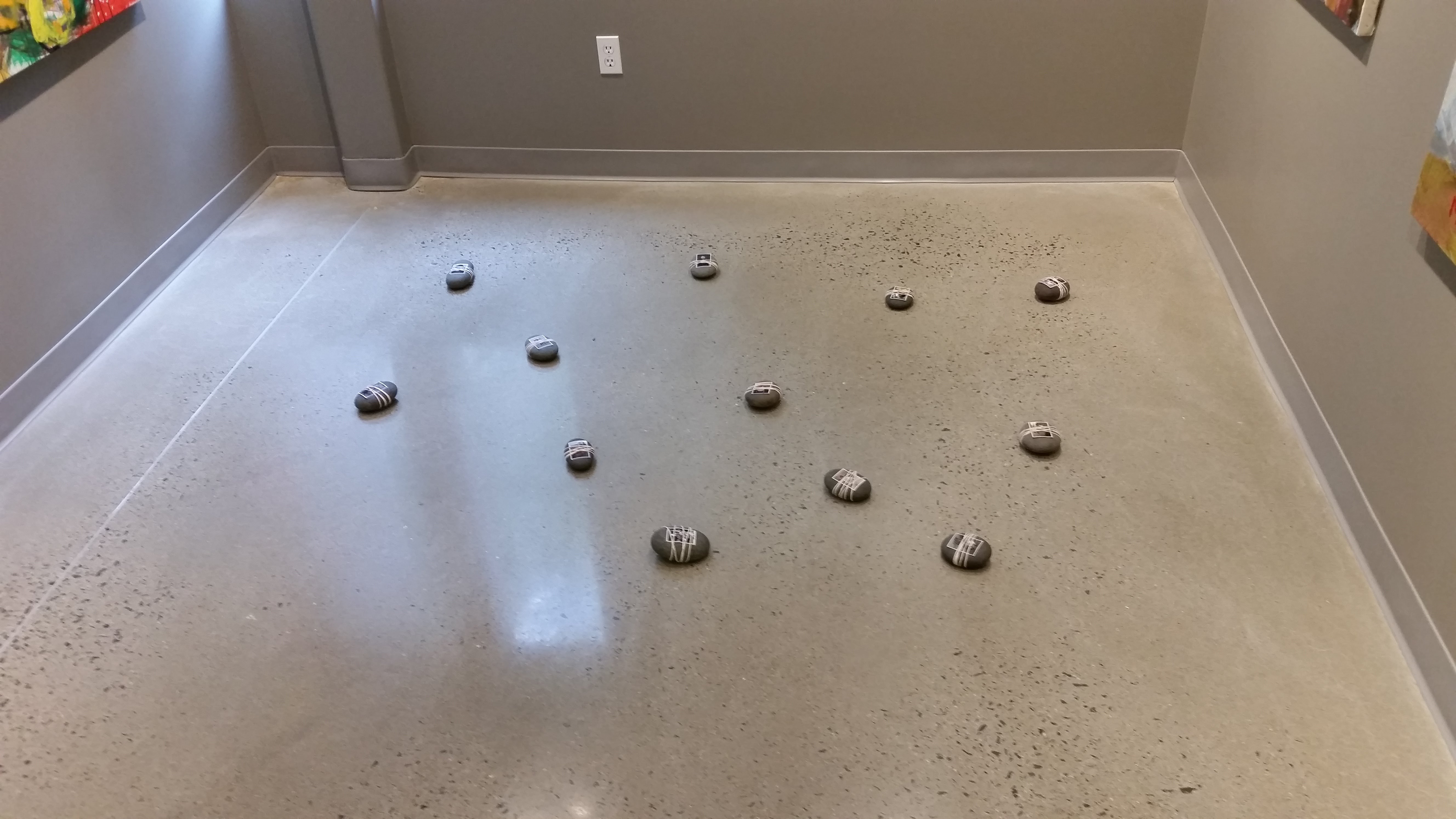Episode 93

This week on NEXT: why the opioid crisis is hitting Latinos in Massachusetts especially hard. Police are setting up stings to catch bootleggers in New Hampshire. Political news from around New England, including the new ranked-choice voting system in Maine, and a new bill in Connecticut that pledges the state’s electoral votes to the winner of the national popular vote. We also hear from a New Hampshire judge about how his son’s mental illness changed his life and visit a Palestinian art museum in Connecticut, which is the only one of its kind in the United States. It’s NEXT.
Latinos Hit Especially Hard By Opioid Crisis in Massachusetts
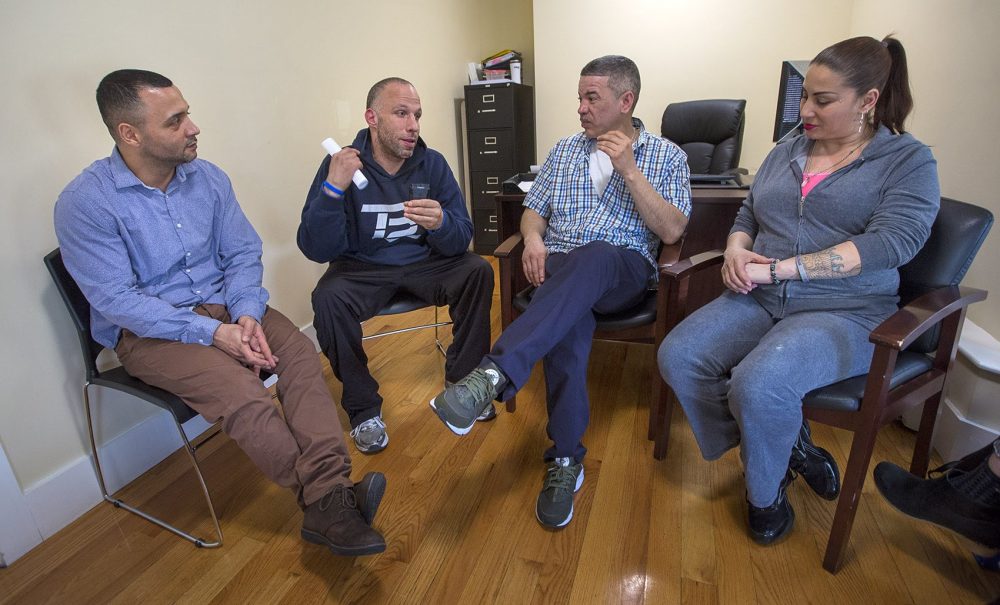
From left to right: Felito Diaz, Julio Cesar Santiago, Richard Lopez and Irma Bermudez speak at Casa Esperanza, a collection of day treatment, residential programs and transitional housing in Roxbury. Photo by Jesse Costa for WBUR
In Massachusetts, the opioid overdose death rate has doubled in three years for Latinos, a rate that is growing twice as fast for this group than it is for any other demographic. WBUR’s Martha Bebinger set out to find why this group is so affected by the crisis, and how policymakers and doctors can help.
Stakeouts and Stings to Catch Bootleggers in New Hampshire
New Hampshire’s state-run, tax-free liquor stores bring customers from all over the region. And recently, lawmakers have been cracking down on bootleggers from other states. NHPR’s Todd Bookman reports on the recent wave of arrests.
New England Pressures Canada to Protect Right Whales
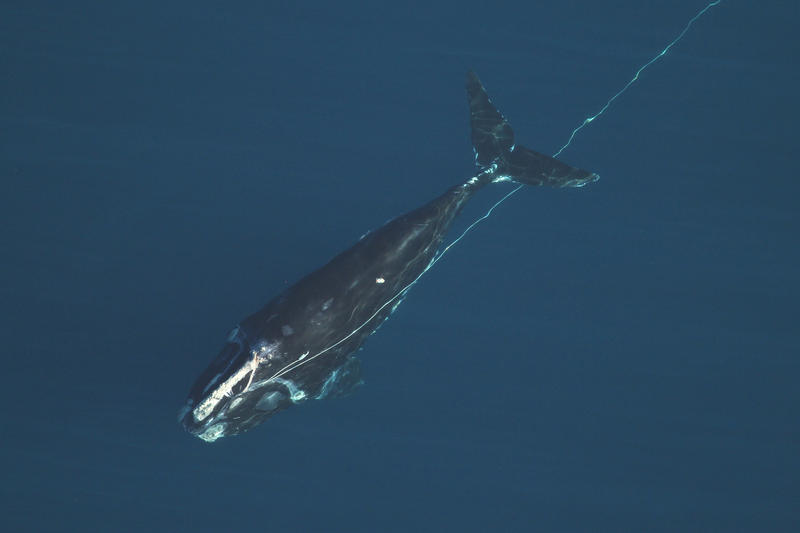
A 4-year-old right whale entangled in heavy fishing rope 40 miles east of Jacksonville, Florida, in Feb. 2014. Photo courtesy of the Florida Fish and Wildlife Conservation Commission, taken under NOAA Research Permit #15488
A group of New England senators are urging the government to analyze Canada’s actions to protect the endangered right whale and to enact serious consequences if they rule Canada is not doing enough. Maine Public’s Fred Bever tells us what’s going on, and what the senators hope to achieve.
Voting in New England
Maine voters will use their new ranked-choice voting system for the first time in the June primary. We speak with Maine Public’s Steve Mistler on why voters wanted ranked-choice voting, and how the new system works.
Plus, the Connecticut legislature voted to join an interstate deal that promises, if enough states join, that the state will give all of its electoral votes over to the winner of the national popular vote, regardless of who wins the popular vote in the state. Mark Pazniokas of the CT Mirror joins us to explain what this means, and what it could achieve.
New Hampshire Judge Encourages People to Talk About Mental Illness
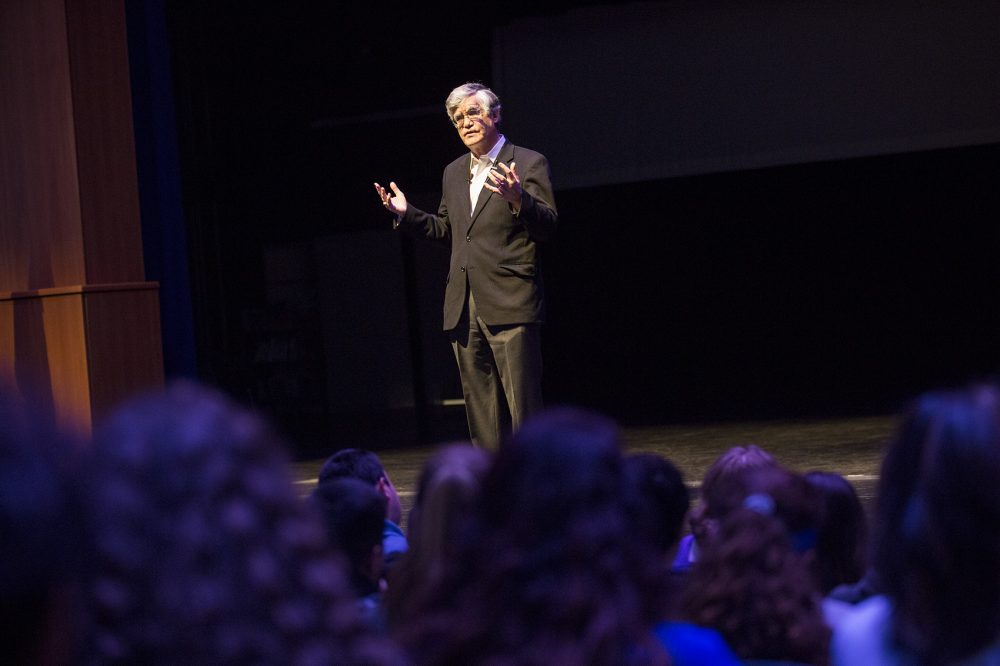
John Broderick, a former chief justice of the New Hampshire Supreme Court, speaks to high school students in Salem, N.H., about mental health awareness. Photo by Jesse Costa for WBUR
A former New Hampshire supreme court justice is visiting schools around New England, speaking about his son’s struggles with mental illness. WBUR’s Deborah Becker reports how Broderick hopes to inspire the next generation to change the conversation and culture around mental illness.
Palestinian Art Museum Opens in Connecticut
The first American museum dedicated solely to Palestinian art, The Palestine Museum, recently opened in Connecticut. Connecticut Public Radio’s David DesRoches recently visited the museum and spoke to the curator about why he feels it’s important to showcase Palestinian art.
Palestinians Live! Event Sparks Conversation and Community
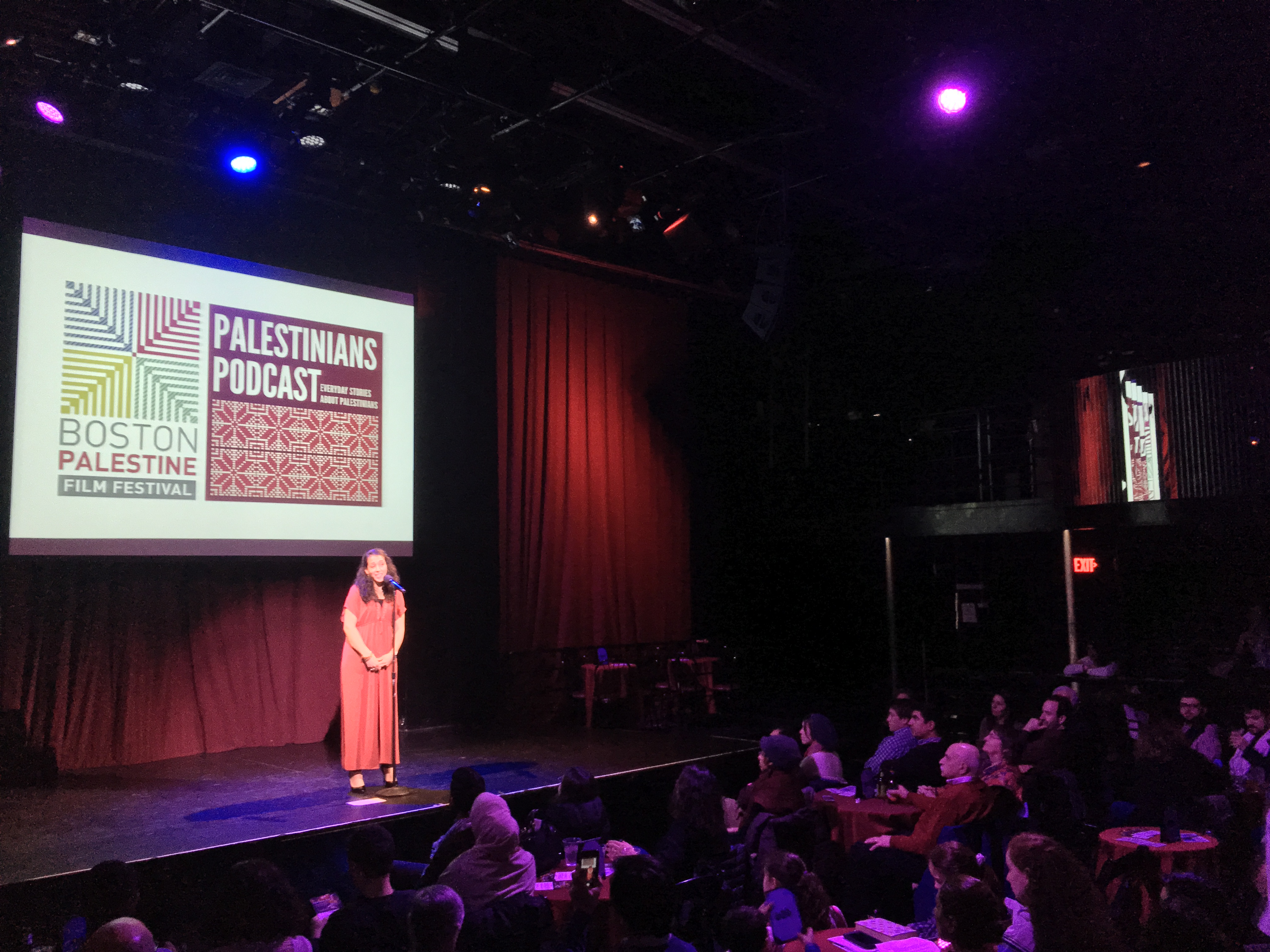
Nadia Abuelezam performs on stage at “Palestinians, Live!” a night of storytelling in Cambridge, Mass, on January 28. Photo by Annie Sinsabaugh
With their stories being so highly politicized, the personal narratives of Palestinians don’t often make it to American ears. Nadia Abuelezam, a Palestinian-American living in the Boston area, wants to change that. In 2015, she launched an event series called Palestinians, Live! featuring true stories told on stage. The stories are later released on Palestinians Podcast, which Nadia also created. Reporter Annie Sinsabaugh went to a recent Palestinians, Live! event at the Oberon Theater in Cambridge, Massachusetts, where she found not only entertainment but a community.
About NEXT
NEXT is produced at Connecticut Public Radio
Host: John Dankosky
Produced with help this week from Lily Tyson and Ali Oshinskie
Digital Producer: Carlos Mejia
Executive Producer: Catie Talarski
Contributors to this episode: Martha Bebinger, Todd Bookman, Fred Bever, Steve Mistler, Deborah Becker, David DesRoches, Annie Sinsabaugh
Music: Todd Merrell, “New England” by Goodnight Blue Moon, “A Million Reasons” by Lady Gaga, “Jigsaw Puzzle Blues” by Fleetwood Mac, “Apotheosis” by Austin Wintory
Photo at the top of the page is of Faisal Saleh, founder of the Palestine Museum, giving a tour. Photo by David DesRoches for Connecticut Public Radio.
Stream every episode of NEXT. We appreciate your feedback! Send critiques, suggestions, questions, and ideas to next@wnpr.org. Follow us on Facebook and Twitter.

